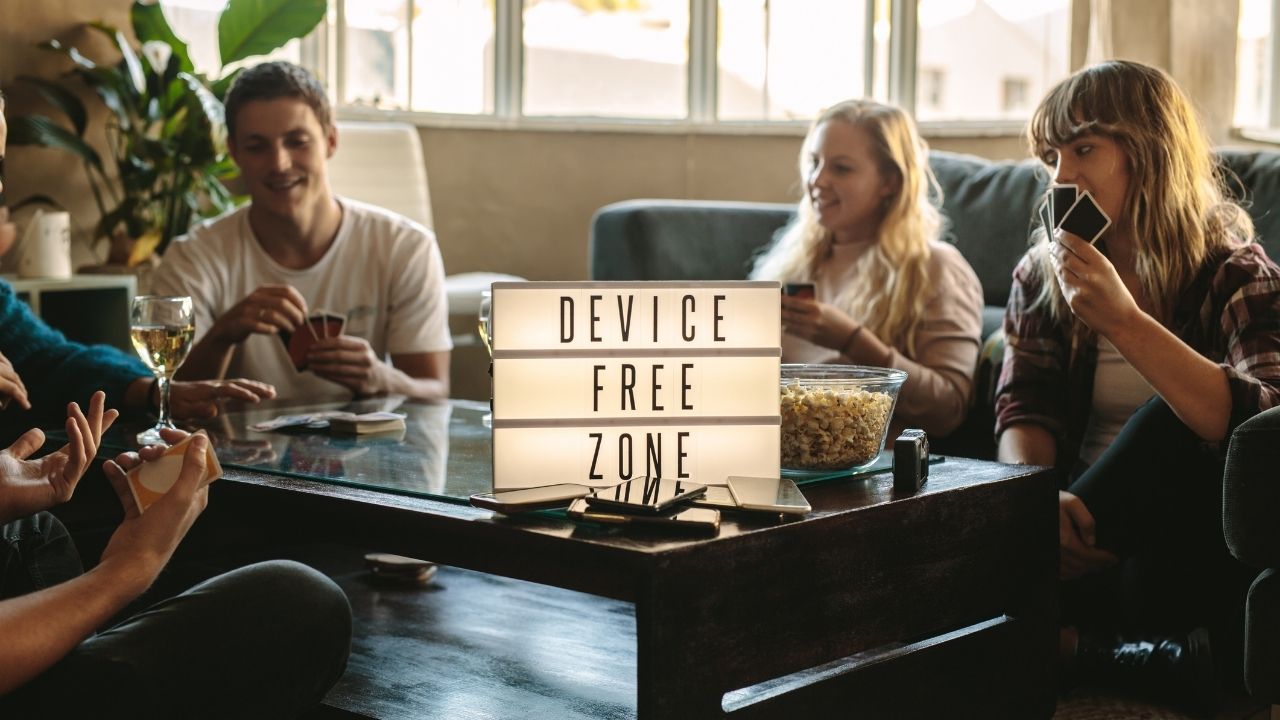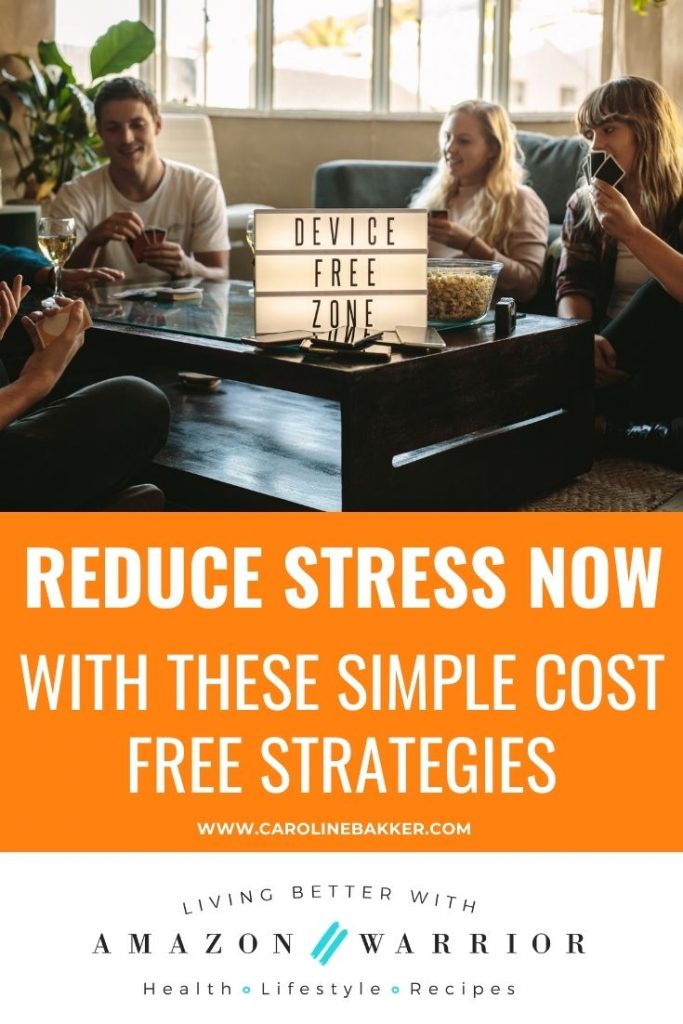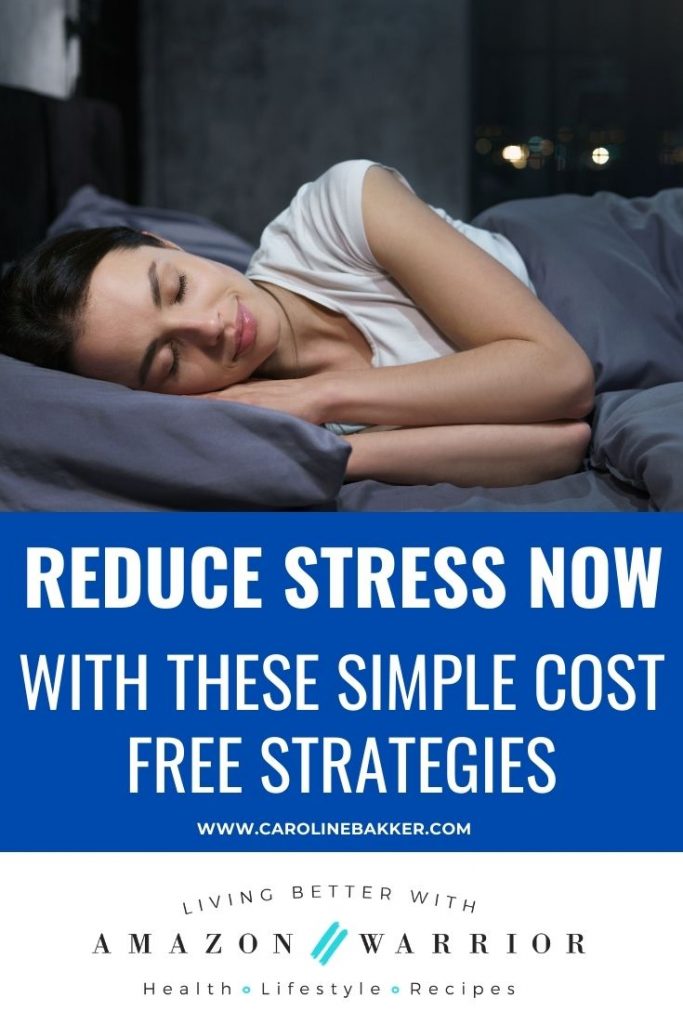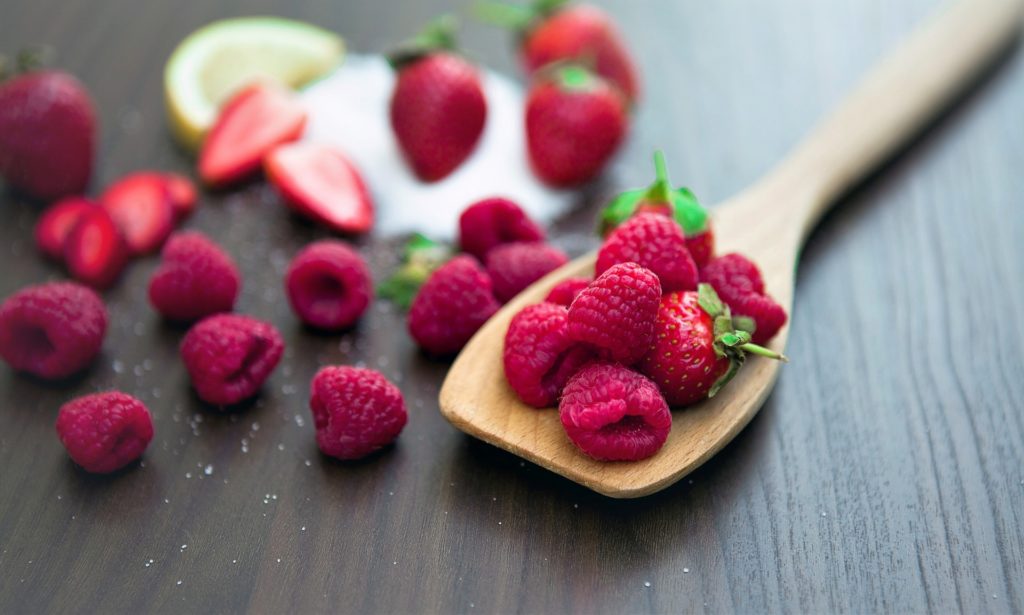Besides seeing, hearing and being continually bombarded with ads all around us, I feel that even some podcasts are constantly trying to sell you something.
Of course I understand that at the end of the day businesses need to make money, but what if we just take a few steps back and look at the simple, basic things we can do to improve our health?
I know this sounds contradictory given that I’m a huge fan of fitness gadgets and tools like my Oura Ring, Apple Watch, Digital Body Composition Scale and Joovv Red Light Photo bio modulation device, I feel that often we overlook the basic, cost free things we can do to make our stressful life more stress free.
So instead of focusing on the fitness and biohacking tools and devices currently available, here is a summary of my favourite things you can do right now to reduce your stress (cost free). I believe that living a healthy life is accessible to everyone, you just have to make the conscious choice to commit to it. Here are my top 3 things you can address to reduce your stresses:
- Get more sleep
- Try a digital detox
- Practice mindfulness
These three things are lifestyle changes and cannot simply “be bought”. To make a change, you’ve got to learn and understand what works for your body and what works for your lifestyle. Be realistic with yourself and your goals as the below may work for some people, but may not work for others.
Personally I feel that these three practices can benefit every single one of us (no matter whether you exercise or not, whether you are into healthy eating or not or whether you work day shift or night shift).
1. Get More Sleep
Sleep is probably one of the most “googled” terms on the web and a recent Australian Government study showed that “Sleeplessness costs Australia over $26 billion a year” (source: Inquiry into Sleep Health Awareness in Australia).
Getting enough sleep isn’t just a fad, it’s an actual fact, backed up by plenty of data. Personally I have been tracking my sleep consistently for 4 months and have found that the quality of my sleep definitely affects my performance the following day.
Many of us don’t actually realise how sleep deprived we may be. Although you may feel that you ‘are tired’ or ‘aren’t getting enough sleep’ understanding how a lack of sleep actually affects our health is something that less people might be aware of. Most of us know that a lack of sleep results in lack of focus, concentration and productivity, but a cumulative lack of sleep, or a so called “sleep debt” is even worse for your long term health and affects the body beyond symptoms like lack of focus and concentration.
“The Australasian Sleep Association (ASA) summarised the importance of sleep describing it as a ‘fundamental biological need, which is essential for physical and mental recuperation.’ The ASA added that the impacts of inadequate sleep on health were wide-ranging as ‘the function of every cell in the human body changes when we sleep, so having insufficient or poor quality sleep impairs the function of every cell.”(source: Inquiry into Sleep Health Awareness in Australia).
Understanding how sleep deprivation affects the body:
- A lack of sleep impairs performance (reduced alertness, shortened attention span, slower than normal reaction time, poorer judgement, reduced awareness of the environment and situation, reduced decision-making skills, poorer memory etc. (source)
- Take for example a 20 year old male, who sleeps 5 hours each night, for 5 night in a row, this sleep deprivation is equivalent to ageing 10 years (in reference to testosterone production) (source: Inquiry into Sleep Health Awareness in Australia) So guys and girls in the gym, this should motivate you to get to bed earlier!! Don’t let your hard work in the gym go to waste, by depriving yourself from sleep.
So how much sleep do you really need?
Everybody is different however it is said that the average adult needs between 7-9 hours of quality sleep to function optimally. Personally I know that I can function quite well on an average of 5-6 hours per night, for a few days, and then on the weekend I’ll need to catch up on sleep.
My weekends are usually time to recharge. This is time where I will have a sleep in in the morning, and an extra long nap (up to 2 hours) during the day. When you nap, you’ve got to time it right as you don’t want to “not be able to go to sleep at night” so my nap is usually around lunchtime. If I nap after 3pm it’s certainly not going to be a good night sleep as the body will be out of its usual rhythm.
So finding out how much sleep you need is really up to you. This is where you’ll need to spend some time to analyse your sleep, and analyse your (physical) performance such as focus, concentration, productivity, irritability, and your overall health and immune function.
You can simply do this by taking note of how you feel vs how much you’ve slept. You can write this down in your journal, or you can use apps like the Oura Ring or Pillow App using your Apple Watch (or for fitbit users you can use the fitbit app).
Things to look for when you track your sleep:
- How much percentage of deep sleep are you getting? (Deep sleep can vary significantly between nights and individuals. It can make up anywhere between 0-35% of your total sleep. On average adults spend 15-20% of their total sleep in deep sleep – source: Oura).
- How do you feel when you wake up? Do you feel rested? Are you irritable? Do you take a long time to wake up? Are you longing for your coffee when you wake up or do you feel rejuvenated and ready to rock your day?
- How many times are you waking during your sleep?
- How early do you go to bed? How long does it take you to fall asleep?
Here’s how you can get a better sleep:
- Limit caffeine and alcohol before bed (personally I only have 1 coffee in the morning and I don’t drink alcohol). My parents always suggested not to have caffeine (or even dark chocolate) after 3pm as this would affect their sleep. So I guess mum and dad you were right all along (except for the chocolate part).
- In the recent sleep study it showed that 37% of people who are sleep deprived, noted that the room is too hot or too cold (followed by young children 20% and external noise 17%). So to get a good sleep, ensure your bedroom is at a comfortable cool temperature (18 degrees celsius is ideal). Personally I like fresh airflow as well to cleanse my brain, so open a window if possible.
- Turn off phones and flashing screens at 8pm (also see my next paragraph – digital detox, or refer to my post Here’s how you can get a better sleep tonight)
- Improve your sleep by going to bed earlier. Do this by starting a bedtime ritual. Remember, throwing the kids into bed really doesn’t work – same goes for adults, so start a proper ritual. For example, 8pm phones off, sprinkle lavender oil on your pillow and blanket (or in diffuser) do some meditation or a soothing evening yoga stretch, shower, intimate time with your loved one, read a book, , 930pm gratitude, lights off, good night 🙂 (See my post with a night time routine Here’s how you can get a better sleep tonight)
- As pointed out in my sleep ritual above, lavender oil has a great benefit of relaxation and may assist you with drifting off to sleep. Sprinkle some on your sheets before going to bed or add it to your diffuser. Or wash yourself with lavender soap before going to bed.
- If you struggle falling asleep and a sleep ritual does not help too much with winding down, try a guided meditation – these are freely available at YouTube or any free meditation app such as Calm, Headspace or Relax Melodies.
- Don’t go to bed holding a grudge or argument. Always aim to resolve arguments or disagreements with your partner BEFORE going to bed. Don’t make the bedroom a place of arguments or discussion. Keep the bedroom for sleep, relaxation, reading a book or making love. If you have to resolve an argument, go to a different room or go for a walk to resolve this. Keep the energy in the bedroom positive and relaxing.
2. Try a Digital Detox
Digital media is all around us and it’s hard to escape flashing screens, flickering billboards and attention grabbing ads online and on TV. Digital media is everywhere and getting away from it may sound harder than you think. However disconnection actually enables us to find deeper connection with ourselves and others.
Give it a go, and disconnect to reduce your stress.
Did you know?
- Doing work in the hour before bed affects the mind and affects your sleep.
- Too much time on digital devices creates a lack of focus and attention.
- I feel that we are disconnected from others and often don’t even look up from our phones to cross the street or avoid walking into others on the footpath.
Disconnecting will:
- Give you time to slow down
- Enable you to stay productive
- Once you switch off, time seems plentiful (compared to the version we tend to race against most days) (source)
Here’s how you can do a digital detox:
- Start small: Start by taking a “phone less walk”. Go on a 20 minute walk WITHOUT your phone. Yes, without your phone! Scary I know! Once you go for a walk and disconnect from this silly beeping buzzing and flashing device, you’ll notice that it’s not such a bad thing. You are still totally in control and you can decide YOUR own schedule and timing as to when you turn off your phone, and when you use it.
- Graduate: Shut your digital devices for 1 hour, then try 2 hours, then try 3 hours, and then simply have a day from 9am till 5pm (or longer) where it’s all turned off. This means that you’ll have to “schedule your digital work”. For example, from 7am till 9am you can do your emails and work, and then from 9am till 5pm you go outside to spend time in nature or work on a creative project.
- Choose 1 day a week (Sunday for me) where you consciously choose to turn off (and stay off) all digital devices including phones, laptops, iPads, and smartwatches.
- Instead of spending time on your digital device(s), actively plan something fun outdoors like a forest or beach walk or catch up with friends and family. Take the time off to create a space to think deeply, connect to yourself, and connect to the people around you.
- Turn your digital devices off when you go to sleep.
- When out for dinner, ideally leave your phone at home or in the car. If you can’t do this, ask everyone at the table to place their phones on a pile in the middle of the table, the first person to grab their phone has to pay the bill for that night 😉 😉
3. Introduce a Simple Mindfulness Practice
Mindfulness is another simple, cost free practice you can do to reduce stress. Often we tend to grab an easy quick fix and think that we can simply ‘buy’ a solution that will reduce our stress but if you are seriously keen about reducing your stress levels, you should look at making changes to your lifestyle, and including a mindfulness practice is definitely one to explore and add in.
If you are new to mindfulness, welcome. Don’t think that ‘I can’t do this’ or ‘I can’t sit still’, simply give it a go and feel how becoming more mindful can help reduce stress.
Mindfulness is something I adopted over the years. It really did not just happen from one day to the next. As I learned more along this beautiful journey called life, I learnt that getting hyped up by certain actions or situations really didn’t make me a better person and I learned that the stresses caused by external factors is something that I can control. After all, it’s all abut my response to an action or situation that can make all the difference
When you are too caught up in life, or in a stressful situation, you are compactly in fight or flight mode, which causes the body to release stress hormones such as cortisol. Increased levels of cortisol prevent the body from performing at its best as the body thinks it is in fight or flight more. The goal is to reduce the stresses in your life and so reduce your cortisol. Off course, a healthy amount of cortisol is required in the body to function properly, but we are talking about excess levels that are caused by stressful jobs, stressful home environments or simply not being able to let go of the day which in turn affects your sleep and then affects your next day – yes it’s all a circle!!
Here’s how you can start your own mindfulness practice
- Journalling is a great way to become more mindful of your thoughts, goals and actions. Write down your thoughts first thing in the morning and write down how you feel. Track your feelings, emotions and stress levels and see how things change over time.
- When you eat your breakfast, practice mindfulness by noticing the food you put in your mouth. Notice the flavour (is it sweet, or savoury?) notice the texture (soft, or squishy or crunchy?) notice your chewing, are you scoffing it down or are you chewing 4, 5 or even 6 times before swallowing?
- When you are caught up in the traffic next time, become aware of how you react when a car cuts you off. Are you simply reacting on auto pilot and getting frustrated or angry? Think about it, perhaps the driver has received some bad news and is trying to get to hospital as fast as possible. Now how do you feel about your reaction?
Becoming mindful is a way to simply become more aware of your actions, your thoughts and your surrounding environment. All these things affect us in different ways and add to our stress levels. So when you become aware of something that’s causing you stress, you can choose to give it a space, and let it go, and don’t let it affect you.
Final Thoughts
Getting more sleep, introducing a digital detox and becoming more mindful are cost free ways to reduce your stress, you simply need to put a bit of effort into it.
There are many more simple and cost free ways to relax more and reduce stress.
Spending time in nature is certainly one to incorporate especially whilst going phoneless (are you ready to try this?).
It’s only once we are becoming aware of how reliant we may be on coffees, digital devices and attention grabbing ads, that we realise how we can change things. It’s simple, you’re the author of your story, just remember to hold the pen.
Don’t let others dictate your story and don’t let a lack of sleep, or addiction to digital media get in your way.
I hope you enjoyed this article and found it helpful. Don’t forget to share it with others who may benefit from it.
Have a wonderful day!






You must be logged in to post a comment.